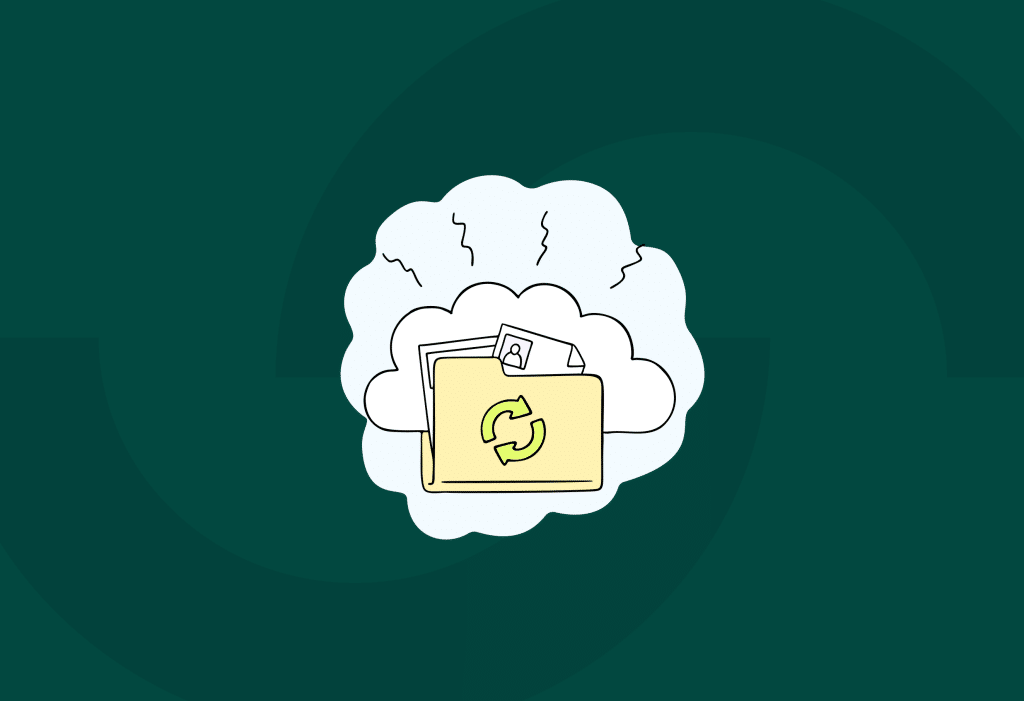26 January 2023 • Cyber security

As an owner of an SME, you know every minute counts when running your business. But there’s one thing you can never pay too much attention to making a backup of your data.
The risks of not making backups
The accident is in a small corner. Hard drives crash, viruses and malware can get in, or even worse, human error causes problems. And if that happens without a backup, it can have hurtful consequences for your business. Just think of all the customer data, financial data and important documents that can be gone in one fell swoop.
There are many risks associated with not backing up your data. Here are some of the main risks:
- Data loss: The most significant risk of not backing up is losing data. This can happen due to hard drive crashes, virus infection, human error or even natural disasters. If you don’t have backups, there’s no way to recover your data, and you could lose everything you’ve built.
- Financial losses: Losing your data can cause immediate financial losses. Think of losing customer data, invoices, sales data, and other financial information.
- Loss of productivity: Losing your data can also lead to a loss of productivity. You will have to spend time recovering your data rather than running your business.
- Reputational damage: If your data is lost, this can also lead to reputational damage for your company. Customers will be concerned about the security of their data, and trust in your company may diminish.
- Compliance Issues: Not making backups can also lead to compliance issues. Many industries are required to store and protect data in some way. Failure to make backups can result in fines or even legal problems.
If you have a backup, you have less to worry about. You can recover your data, get your business back on track and get on with what you were doing.
How to make a backup
Backing up is really not that hard. There are many ways to back up your data, from external hard drives to cloud-based solutions. Just choose the method that best suits your business and start backing up.
There are several ways to back up your data. Here are a few methods:
- External hard drive: You can purchase an external hard drive and copy your data onto it. This is an easy way to make a backup, and you can easily take the hard drive with you on the road.
- Cloud-based solutions: There are many cloud-based storage services you can use to back up your data, such as Google Drive, Dropbox, iCloud etc. These services are often free or available at a price.
- Backup software: There are also many programs specifically designed to make backups. These programs back up your data automatically and also allow you to select specific files or folders to back up.
It is important to remember that backing up is only one step in the data protection process. It is also meaningful to regularly test and update backups to ensure that data is always up-to-date and secure.
Regularly test your backup
Backing up is one thing, but testing your backup is just as important. Because if you never check whether your backup really works, it’s like you don’t have a backup. So make sure you regularly test your backup to ensure your data is safe.
Testing your backup is substantial for several reasons:
- Assurance that the backup works: By testing your backup, you can be sure that it was done correctly and that your data is stored safely. This gives you the peace of mind of knowing that your data can be recovered if something goes wrong.
- Identification of problems: Testing your backup will help you identify and fix any issue before an emergency occurs. This could be technical problems such as corrupted files or lack of storage space in the backup location.
- Up-to-date data: Testing your backup ensures that the backup contains the most recent data. This is important because an old backup is of little value if the data is out of date.
- Compliance: Some industries are required to regularly test backups for regulatory compliance. This applies, for example, to companies in healthcare or financial services that have to meet specific data storage requirements.
- Time savings: By regularly testing your backup, you can quickly resolve any problems before they get out of hand. This can save time and money in the event of an emergency.
In general, testing your backup is a crucial step in the data protection process. It gives you peace of mind that your data is safe, helps identify and resolve issues, and ensures that you’re compliant. So be sure to regularly test your backup to ensure you always have a plan B if something goes wrong.
In this blog, we’ve discussed the importance of backups for SMBs, how to back them up, and why testing them is so important. Don’t wait any longer to make backups to protect your business.



